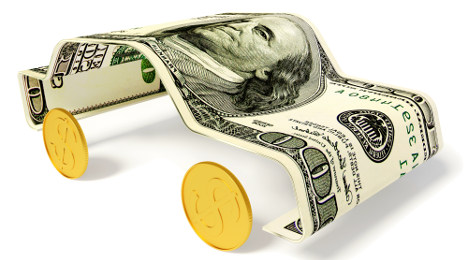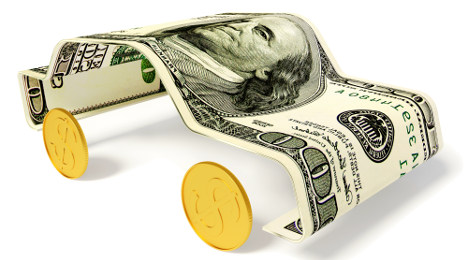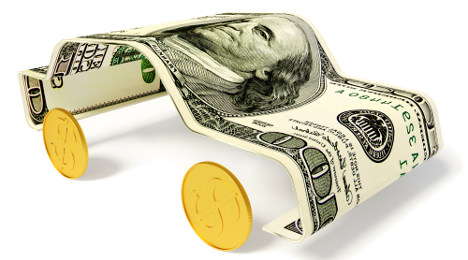To hear Pelican Auto Finance chief executive officer Troy Cavallaro explain the impact, the $100 million warehouse funding facility with Wells Fargo Securities the company announced on Wednesday will help the deep subprime auto finance provider in two places.
The facility represents Pelican’s chance to advance both on Wall Street as well as dealerships that often gather along major thoroughfares in the markets within the 30 states the company is licensed.
In a conversation with SubPrime Auto Finance News, Cavallaro indicated how Pelican has been working on this deal with Wells Fargo “for a few months” as a way to enhance a previous senior debt facility.
“With the growth that’s underway, we were looking at the next step,” he said. “I think Wells Fargo certainly is that. We’re looking at it from a rising interest rate environment. The potential access to the securitization market becomes more attractive.
“The Fed is obviously on course to raise rates at some point, whether it be in September or later this year. I think locking in and having the potential to securitize is very important,” Cavallaro continued.
“With that, Wells Fargo and their group of professionals have enormous experience with bringing deals to market and providing these warehouse facilities as a major force in the industry,” he went on to say. “That’s really why we chose them because they have the great reputation and what they can do for us in the long term with securitization and advisement can go a long way.”
Furthermore, with the funding injection, Cavallaro highlighted Pelican now can offer another way to reduce the number of times this scenario unfolds, especially at franchised dealerships. Imagine a customer who is eager to buy a vehicle or really needs upgraded transportation but their credit score is in the 500s so the store can’t get the deal bought by its collection of financing sources.
Now Pelican has the capacity to fund originations at 60 months and 66 months depending on the quality of the vehicle collateral.
“For franchised dealers, we’re going to allow them the opportunity to finance customers who are probably walking off their dealership lots today,” Cavallaro said.
About 90 percent of Pelican’s volume resides in indirect auto financing at both franchised and independent stores. But the development with Wells Fargo also is giving Pelican a lever to pull within a smaller part of its business, too, working with buy-here, pay-here dealers.
“We continue to work selectively with the buy-here, pay-here dealers,” Cavallaro said. “We’re looking for something different than being a traditional bulk purchase buyer. What we really seek out in the industry is buy-here, pay-here partners that want to build a relationship and sell seasoned paper from their portfolios on a monthly basis to replenish their credit lines. Our current book of business from buy-here, pay-here partner dealers is unique in terms that the performance allows us flexibility to structure and be creative with them.
“It’s not a traditional bulk purchase platform. It’s more of a partner platform, and hence, that’s why we call it that,” he went on to say.
The upward trajectory for all segments of Pelican’s business as well as the relationship with Wells Fargo also delighted the leadership of Flexpoint Ford, a private equity investment firm with offices in Chicago and New York that pushed its resources behind Pelican two years ago.
“Pelican is building a best-in-class subprime auto finance platform through a focus on high customer service standards. We remain extremely excited about our partnership with Troy and his team,” Flexpoint Ford managing director Chuck Glew said.
“The new Wells Fargo credit facility will allow the company to offer a more complete lending solution to dealers and will support further geographic expansion,” Glew continued.
Now with this warehouse funding milestone achieved, Cavallaro is eager to watch what happens as Pelican strives to be “a major, long-term player in the deep subprime auto finance space.”
He added, “We really have the runway in terms of financial backing that we need for the disciplined growth that’s in front of us.”
Black Book is projecting that vehicle depreciation will be relatively stable in 2015 — coming in between 14.0 percent and 14.5 percent by the end of year.
As a result, Fitch Ratings believes the depreciation movement will result in only a small impact this year on auto ABS asset performance as well as loss rates.
The two firms made those assertions when Black Book and Fitch Ratings released their latest joint vehicle depreciation report on Tuesday.
“There remains talk of increased interest rates in the near term, and auto lenders are expected to rely more heavily on collateral trends in order to analyze and assess their portfolio to identify continued opportunities for growth,” said Hylton Heard, senior director of Fitch Ratings.
Fitch does expect recovery rates to flatten out and perhaps dip in 2015, given signs of pressure on used vehicle values as volumes entering the market rise in the latter half of the year.
Fitch is observing diverging trends in loss rates in the prime and subprime auto ABS sectors, with subprime losses rising notably year-over-year through June this year, while prime losses have remained low.
“As mentioned previously, the rise in subprime losses has been driven mostly by lower credit quality, longer loan terms and higher loan-to-values (LTV) in the 2013-2015 subprime securitized pools,” Fitch analysts said. “Collateral and credit quality was strong historically in the prior securitized 2010-2012 subprime ABS transactions when compared to the most recent vintage transactions.
“Depreciation rates have not had much impact on subprime asset performance to date this year, but this could change if recovery rate drop materially but this is not predicted despite pressure on the wholesale vehicle values in the latter half of 2015,” they continued.
In the subprime sector, Fitch reported auto loan ABS 60-day delinquencies hit 4.0 percent in July and were 22 percent above the June reading. The peak in 2015 through June was 4.75 percent, while the historical average was 3.19 percent.
Analysts also pointed out that subprime losses are rising and moved up to 5.39 percent in July, 9 percent above May and 20 percent higher compared to a year earlier. Fitch recollected subprime annualized net losses hit a peak of 8.19 percent back in January, and have exhibited a rising, volatile trend this year.
“The peak subprime loss rate was 10 percent to 13 percent recorded back in early 2009, so despite moving higher this year losses remain well below peak levels,” analysts said. “The 2013-2014 vintages are displaying higher losses relative to the strongest 2010-2012 vintages.”
In the prime space, Fitch noticed auto loan ABS 60-day delinquencies came in at 0.36 percent in July, 9 percent higher versus a year earlier. The firm said delinquencies have ranged from between 0.28 percent to 0.46 percent in 2015, “a relatively tight band and low on a historical level.”
Analysts added prime annualized net losses stood at 0.42 percent through July, up 45 percent over a year ago. They explained the movement by stating, “but loss rates are still very low and June’s level was well below the historical average of 0.93 percent dating back to 2001.” The peak loss rate in 2015 was 0.52 percent through June of this year.
Black Book analysis in the report showed that the supply of used vehicles will continue to increase, ultimately leading to larger depreciation. Annual depreciation on 2- to 6-year-old vehicles was 12.1 percent in 2014, similar to the levels seen in 2012 and 2013.
Analysts called the annual depreciation in 2011 “unbelievably strong” since it was 7.7 percent. They attributed the rate to limited manufacturer vehicle production and low inventory levels, combined with strong pick-up in demand for both new and used vehicles after the recession.
Annual depreciation in pre-recession years ranged from 14 percent to 18 percent, which will put the expected depreciation of 14.5 percent in 2015 at the lower end of the range in peak depreciation periods.
“Demand has remained strong over the last few years, but at this point the attention will turn toward overall supply in the market,” said Anil Goyal, vice president of automotive valuation and analytics for Black Book. “With off-lease vehicles approaching all-time highs in the coming years, we expect that supply will be a primary driver for the accelerating depreciation over the next few years.”
Elsewhere in the report, Fitch indicated that pools of loans and leases securitized will be susceptible to present vehicle segment concentrations.
“This is due to various factors that drive used values by vehicle segment, including gas prices, interest rates, and industries. For example, with the building industry picking up demand for trucks has improved and so have values in 2015,” analysts said.
NextGear Capital recently completed the sale of $433 million privately placed notes, providing the company with additional capital and operating flexibility to support the rapid growth of its dealer finance business.
Officials highlighted this securitization comes less than a year after the NextGear Capital’s inaugural bond issue last November when the company secured a $433 million bond securitization.
“NextGear Capital is extremely pleased at the bond market’s receptivity to our second transaction, following our inaugural issue last November," said David Horan, chief financial officer of NextGear Capital, which is one of the sponsors of Used Car Week, the industry’s leading series of conferences being held from Nov. 16-20 at the Phoenician in Scottsdale, Ariz.
“This securitization supports our company's rapid growth as we continue to position both ourselves and Cox Automotive as the industry leader when it comes to how the world buys, sells and owns cars,” Horan continued.
“As NextGear Capital rises to meet market demand, we will look to the bond markets for capital to complement the funding from our strong bank group,” he went on to say.
As Consumer Portfolio Services closed its second term securitization of the year, General Motors cheered Fitch Ratings’ decision this week to raise the credit ratings of both GM and GM Financial to investment grade with the finance company’s diminishing presence in the subprime space being an element impacting the decision.
With this upgrade, the corporate credit ratings for GM are now investment grade with all major rating agencies.
Fitch’s news today confirms that we are delivering on our commitment to generate strong operating results and implement our customer-focused strategy,” GM chief executive officer Mary Barra said. “But, as much as we like this recognition, we are focused on achieving even stronger performance and enhancing long-term shareholder value in the years to come.”
The new GM corporate and GM Financial credit ratings assigned by Fitch are BBB- with a “stable” outlook. Each credit rating is one level higher than the previous GM and GM Financial ratings of BB+, which were assigned by Fitch in August 2012 and August 2013, respectively.
In explaining its decision regarding the upgrade, Fitch referenced GM Financial’s move away from taking on a vast amount of subprime paper and shifting toward more prime contracts as well as new-vehicle leases.
“Operating performance remains solid driven by growth in earning assets, but margins and return ratios are gradually declining reflecting the run-off of higher-yielding pre-acquisition receivables and the continued shift in the originations from higher-return, higher-risk subprime loans to lower-return, lower-risk prime and commercial loans,” said Fitch analysts. They also pointed out that GM Financial’s subprime vehicle installment contract penetration declined to 26 percent of total earning assets as of March 31, down from more than 80 percent at the end of 2012.
“Earning assets are expected to continue to grow as GM Financial continues to transition to a full-service captive,” Fitch analysts continued. “Fitch will monitor the company’s growth and expansion into these products paying particular attention to underwriting standards, credit quality, profitability and leverage metrics.
“Further, as the portfolio continue to grow, Fitch will pay particular attention to the GM’s ability to support GM Financial as outlined under the support agreement and how the potential liability could impact GM,” they went on to say.
Details of CPS’ $250 Million Securitization
CPS highlighted this transaction is the company’s 17th senior subordinate securitization since the beginning of 2011 and the fifth consecutive securitization to receive a triple-A rating on the senior class of notes.
In the transaction, CPS indicated qualified institutional buyers purchased $250 million of asset-backed notes secured by automobile receivables purchased by the company.
The sold notes, issued by CPS Auto Receivables Trust 2015-B, consist of five classes. Ratings of the notes were provided by Standard & Poor’s and DBRS and were based on the structure of the transaction, the historical performance of similar receivables and CPS’s experience as a servicer.
CPS Auto Receivables Trust 2015-B
| Note Class |
Amount |
Interest
Rate |
Average
Life |
Price |
S&P
Rating |
DBRS
Rating |
| A |
$166.9 million |
1.65% |
1.22 years |
99.99963% |
AA- |
AAA |
| B |
$32.5 million |
2.94% |
2.93 years |
99.98912% |
A |
A |
| C |
$32.5 million |
4.20% |
3.68 years |
99.99309% |
BBB |
BBB |
| D |
$10.0 million |
5.83% |
4.08 years |
99.99749% |
BB |
BB |
| E |
$8.1 million |
6.22% |
4.08 years |
99.99714% |
B |
B |
Officials mentioned the weighted average effective coupon on the notes is approximately 3.15 percent.
The 2015-B transaction has initial credit enhancement consisting of a cash deposit equal to 1.00 percent of the original receivable pool balance. The final enhancement level requires accelerated payment of principal on the notes to reach overcollateralization of 4.00 percent of the then-outstanding receivable pool balance.
The company pointed out the transaction utilizes a pre-funding structure, in which CPS sold approximately $155.1 million of receivables this week and plans to sell approximately $94.9 million of additional receivables during July.
“This further sale is intended to provide CPS with long-term financing for receivables purchased primarily in the month of June,” officials said.
“The transaction was a private offering of securities, not registered under the Securities Act of 1933, or any state securities law,” CPS went on to say. “All of such securities having been sold, this announcement of their sale appears as a matter of record only.”
In the company’s second securitization of the year, Exeter Finance Corp. announced the pricing of a $550 million securitization backed by automobile loan receivables. The private offering included four classes of fixed rate notes issued by Exeter Auto Receivables Trust (EART) 2015-2, which were priced on Tuesday.
Company officials explained the $360,940,000 senior Class A notes have a weighted average life of 1.07 years and are rated AAA/AA by DBRS and Standard & Poor’s, respectively, with a coupon of 1.54 percent.
The $75,620,000 Class B notes have a weighted average life of 2.85 years and are rated A with a coupon of 2.65 percent.
The $58,730,000 Class C notes have a weighted average life of 3.60 years and are rated BBB with a coupon of 3.90 percent.
The $54,710,000 Class D notes have a weighted average life of 4.07 years and are rated BB with a coupon of 5.79 percent.
Exeter indicated the Class B, C and D notes are also rated by DBRS and Standard & Poor's.
The transaction was announced on Monday and is expected to close next Wednesday.
“Exeter is pleased to have executed its second auto loan securitization this year,” said Andrew Kang, Exeter senior vice president and treasurer.
“This transaction was met with strong investor demand and demonstrated significant oversubscription levels, which allowed Exeter to upsize the transaction from $450 million to $550 million while improving overall pricing,” Kang continued..
Deutsche Bank Securities and Citigroup acted as joint book runners on the transaction, with Barclays, J.P. Morgan and Wells Fargo Securities participating as co-managers.
Fitch Ratings found another place where heightened competition amongst auto finance companies is leaving an impact.
The firm’s latest report indicated U.S. prime auto ABS collateral has been marginally weakening in recent months due in part to that competition.
Analysts explained that since 2011, credit quality of the underlying pools has declined marginally, but remains much stronger than pre-recessionary levels. Fitch said competition and low loss levels are encouraging slightly riskier loan attributes for auto ABS, according to senior director Brad Sohl.
Fitch also pointed out that finance companies are catering to consumer demand for low monthly payments by extending loan terms, namely loans with terms greater than 60 months.
“Auto finance companies are increasingly offering 73- to 84-month loans to borrowers across the FICO spectrum,” said Fitch director Joyce Fargas, who added that this trend is likely to continue throughout this year, which could drive higher loss severity in ABS transactions.
“Prime auto lenders are also showing a higher propensity to lend to non-prime borrowers,” Fargas continued. “As a result, we're seeing slight increases in non-prime concentrations within prime auto loan securitized pools.”
Fitch is expecting exposure to borrowers with FICO scores below 650 to trend higher in prime auto ABS portfolios in 2015, but to be contained to around 10 percent of ABS pool.
Despite the marginally negative migration in collateral, Fitch is maintaining its stable performance outlook for prime auto ABS.
Fitch's rating outlook for the sector is positive, and the firm expects upgrades to be strong, consistent with the rate seen last year.
Fitch upgraded 51 prime auto ABS tranches through the end of 2014, representing the highest rate in six years.
Three finance companies — Prestige Financial Services, Credit Acceptance Corp. and Consumer Portfolio Services — all shared investment news this week.
The largest of the three developments came from Prestige Financial Services, which completed its 13th and largest rated term securitization, issuing $400 million in securities backed by $414,507,771 in automobile installment receivables.
In a transaction led jointly by Wells Fargo Securities and J.P. Morgan Securities, notes were purchased by qualified institutional buyers in a private offering pursuant to Rule 144A of the Securities Act. The securitization closed on Thursday.
The company said the seven note classes issued by Prestige Auto Receivables Trust 2015-1 carried ratings ranging from A-1+/R-1(h) through BB/BB from Standard & Poor’s and DBRS, respectively, based on several factors including Prestige’s proven track record as a loan originator and servicer. The weighted average rate was 2.08 percent.
“PART 2015-1 represents yet another successful transaction from Prestige, as evidenced by robust investor participation and attractive pricing levels in a crowded market,” said Leah Miller, managing director at Wells Fargo Securities.
Prestige, based in Salt Lake City, manages a loan portfolio of nearly $900 million and does business with more than 2,000 dealerships in 46 states.
Prestige was founded in 1994 as an affiliate of the Larry H. Miller Group of Companies, which includes the NBA’s Utah Jazz and one of the country’s largest auto dealership networks.
“The strong investor backing we enjoyed on this deal reflects an appreciation of our basic objective to help customers improve their credit and their lives by financing top-quality vehicles,” Prestige president Bryant Henrie said. “It’s worked for more than two decades, and continued support from our investors and bankers will facilitate these efforts for many years to come.”
Henrie added all notes included in this transaction having been sold, this announcement of their sale appears as a matter of record only.
Credit Acceptance Announces Pricing of $250 Million Senior Notes Offering
Credit Acceptance announced this week it priced $250 million of its 7.375 percent senior notes due 2023 in its previously-announced offering.
The Southfield, Mich., company indicated the issue price is 99.266 percent of the principal amount of the notes. The closing of the sale of the notes is expected to occur on or about Monday, subject to customary closing conditions.
“We intend to use the net proceeds from the offering of the notes for general corporate purposes, which may include repayment of outstanding borrowings, if any, under our revolving credit facility,” company officials said.
“The notes will be offered to qualified institutional buyers pursuant to Rule 144A under the Securities Act of 1933, as amended,” they continued. “This press release shall not constitute an offer to sell or the solicitation of an offer to buy, nor shall there be any sale of, the notes in any jurisdiction in which such offer, solicitation or sale would be unlawful prior to registration or qualification under the securities laws of any such jurisdiction.
Credit Acceptance mentioned the notes will not be registered under the Securities Act and may not be offered or sold in the United States or to U.S. persons absent registration or an applicable exemption from registration requirements.
CPS Outlines $245.0 Million Senior Subordinate Asset-Backed Securitization
Also arriving this week, Consumer Portfolio Services, announced the closing of its first term securitization in 2015. The transaction is CPS’ 16th senior subordinate securitization since the beginning of 2011 and the fourth consecutive securitization to receive a triple-A rating on the senior class of notes.
In the transaction, CPS highlighted qualified institutional buyers purchased $245 million of asset-backed notes secured by automobile receivables purchased by CPS. The sold notes, issued by CPS Auto Receivables Trust 2015-A, consist of five classes. Ratings of the notes were provided by Moody's and DBRS and were based on the structure of the transaction, the historical performance of similar receivables and CPS's experience as a servicer.
| Note Class |
Amount |
Interest
Rate |
Average
Life |
Price |
Moody's
Rating |
DBRS
Rating |
| A |
$163.5 million |
1.53% |
1.19 years |
99.99639% |
Aa2 |
AAA |
| B |
$36.8 million |
2.79% |
2.95 years |
99.99243% |
Aa3 |
A |
| C |
$25.7 million |
4.00% |
3.69 years |
99.97818% |
Baa2 |
BBB |
| D |
$11.0 million |
5.60% |
4.06 years |
99.97103% |
Ba3 |
BB |
| E |
$8.0 million |
6.19% |
4.06 years |
99.98766% |
B2 |
B |
The weighted average effective coupon on the notes is approximately 3.01 percent.
Officials indicated the 2015-A transaction has initial credit enhancement consisting of a cash deposit equal to 1.00 percent of the original receivable pool balance. The final enhancement level requires accelerated payment of principal on the notes to reach overcollateralization of 4.00 percent of the then-outstanding receivable pool balance.
The company went on to mention the transaction utilizes a pre-funding structure, in which CPS sold approximately $173.0 million of receivables today and plans to sell approximately $72.0 million of additional receivables during April.
“This further sale is intended to provide CPS with long-term financing for receivables purchased primarily in the month of March,” officials said.
“The transaction was a private offering of securities, not registered under the Securities Act of 1933, or any state securities law,” they continued. “All of such securities having been sold, this announcement of their sale appears as a matter of record only.”
In what might not be surprising to top company executives, Fitch Ratings recently acknowledged that auto finance companies are likely to see loan asset quality weaken in 2015, with annualized net losses moving closer to their historical averages.
While prime auto loans continue to perform well, Fitch indicated subprime auto loan ABS annualized net losses are deteriorating at a “quicker pace”, recently crossing 8 percent before dropping to 7.26 percent as of the end of February.
Analysts pointed out the level is above the 10-year average of 6.24 percent, but below the past recession peaks of 9 percent to 13 percent.
“Fitch expects subprime auto loan performance to continue to soften modestly in 2015 due to heated competition-driving declines in subprime loan pricing, easing underwriting standards and moderation in used-car values,” analysts said.
“These factors contribute to Fitch's negative 2015 sector outlook for finance and leasing companies, but at this stage they are viewed as manageable relative to available capital levels and current auto lender ratings,” they continued. “For auto ABS, asset performance remains in line with loss expectations and Fitch’s outlooks are stable for prime and subprime auto loan ABS performance.”
While Fitch noted manufacturers have been disciplined on new-vehicle production and incentive spending, the firm emphasized that strong overall vehicle sales have kept the industry vulnerable to competitive pressures.
“We believe loan demand is likely to remain strong amid improving economic indicators in the U.S., despite an increase in consumer indebtedness,” analysts said.
Fitch sees not only an easing of overall credit terms (inclusive of loan term, pricing and down payments), but also a decline in average FICO scores.
“These factors have led to increases in subprime lending and a rise in subprime auto ABS issuance over the past year,” Fitch said.
“We see the eased standards being driven by smaller, less capitalized market participants, some backed by private equity capital,” analysts continued. “These lenders are competing to win market share and capture increased loan yields. We see loosened standards likely to affect the performance of the 2014 and 2015 loan vintages.”
Fitch went on to mention that against the backdrop of easing loan standards are the counterforces of an “improving” macro environment and currently “healthy” used-vehicle values, which help underpin the stable outlooks on auto ABS.
The firm recapped that U.S. auto loan and lease credit losses and delinquency rates increased in the second half of last year due to the seasonal effect of lower available consumer discretionary spending and, despite picking up in the fourth quarter, an overall decline in recovery values on used vehicles.
The average net loss rate for Fitch rated finance companies was 1.06 percent in the fourth quarter, up 5 basis from the end of 2013. Average 30-day delinquencies stood at 3.96 percent, an increase of 7 basis points since the fourth quarter of 2013.
Fitch explained the metrics are “reflecting continued easing of underwriting standards and higher nonprime lending. Both metrics still remain comfortably below pre-crisis levels.”
The top nine Fitch-rated auto finance companies, including captives, held about $450 billion of auto loans at year end. Of the nine, only General Motors Financial and Capital One have any “meaningful” subprime exposure in their loan portfolios, according to Fitch.
When Consumer Portfolio Services reported a year-end earnings per share increase of more than 35 percent, chairman and chief executive officer Brad Bradley not only highlighted that performance, but also how the company is preparing to answer questions from the Consumer Financial Protection Bureau and the U.S. Department of Justice.
Bradley reiterated how CPS previously acknowledged that the two federal agencies are investigating the finance company in the same manner as several other operations that specialize in subprime auto financing are being reviewed. CPS already made modifications and paid a penalty after the Federal Trade Commission handed out an enforcement action last year in connection with the company’s collection practices.
“The regulatory market obviously is continuing to be more interesting by the day, and so we have spent an awful lot of time, particularly in the collection front, training everyone in terms of all the different compliance areas,” Bradley said when CPS conducted its most recent conference call with investors.
“I think we are way ahead of the curve, but nonetheless, it is the process of really making sure everything we do is compliant across the board. Because whether regulatory people look around, we want everything where it’s supposed to be,” he continued. “And so we spent a lot of time with retraining and more training and listening to calls to make sure everything is being done the right way.”
Bradley also mentioned how CPS is working to ensure the dealers in its network also are abiding by what federal regulators mandate. CPS is ramping up the effort in light of the CFPB on the lookout for disparate impact happening in auto financing.
The CPS boss explained that the finance company currently has between 8,000 and 10,000 dealers in its network for vehicle installment contract originations. Each quarter, the company calls on dealers to make sure they are compliant, and at last check, the company found less than a dozen showed any signs of disparate impact issues.
Bradley said the check-up is done to see if “there might be some disparate impact in the way they make car loans. If so, we cut them off our program and put them into a rehabilitation program at which point if they can complete that and demonstrate that there have been some changes so they can re-enter our program.
“Those kind of things I think can put us in a very strong position in terms of where we sit with all the CFPB stuff that’s coming down the pike,” Bradley continued.
Meanwhile, the Department of Justice investigation is connected more with what happens to those vehicle installment contracts after they’re originated and packed together in securitizations for the investment community, according to Bradley. Again, the top CPS executive is confident the company can navigate any questions DOJ might have, especially since CPS seems to adhere the protocol set by the industry.
“What’s a little interesting about that is as one can imagine, the investors buying those loans or the bonds, the ABS bonds, are pretty used to buying a very standardized format,” Bradley said. “And so all of the companies, including ourselves, follow those formats, and so we are all doing it basically the same.
“I think given the mortgage comparison — unfair, unkind or untrue that it may be — I think the government wants to make sure that we are not doing what the mortgage folks did, which is putting out a bunch of loans that aren’t going to be able to be paid,” he continued. “I won’t bother anyone with a long list of why the auto industry is nothing like the mortgage industry, with a small exception that all of our bonds are and as everyone else in our industry paid great to a very significant recession unlike the mortgage folks.
“And so we, I, and the rest of our industry would stand on that,” Bradley went on to say. “But even so, we will be participating in the DOJ investigation along with everyone else. And it’s very hard to say more on that subject than we already have.”
Latest Company Performance
Consumer Portfolio Services reported fourth-quarter earnings of $8.0 million, or 25 cents per diluted share. Those figures are up from $6.5 million, or 21 cents per diluted share, in the fourth quarter of last year, representing a 19-percent increase in earnings per diluted share.
The company’s full-year earnings for 2014 came in at $29.5 million, or 92 cents per diluted share, as compared to earnings of $21.0 million, or 67 cents per diluted share, for 2013. The gain represented a 37-percent spike in earnings per diluted share.
Officials indicated Q4 revenue jumped $16.9 million or 25.4 percent to $83.5 million, up from $66.6 million for the fourth quarter of 2013. They acknowledged total Q4 operating expenses rose by $14.0 million or 25.4 percent to $69.1 million, climbing from $55.1 million a year earlier.
Looking at pretax income, CPS posted a 24.4 percent increase year-over-year in the fourth quarter, generating a rise from $11.5 million to $14.3 million.
For the year, CPS’s total revenues came in at $300.3 million, up from $255.8 million in 2013. Officials pointed out that 2013 revenues included $10.9 million from a gain on cancellation of debt.
Excluding that gain, the company calculated 2014 revenues increased $55.4 million or 22.6 percent over the prior year.
CPS’ total 2014 expenses climbed from $218.6 million to $248.0 million. But the company mentioned that in 2013 its operating expenses included a provision for contingent liabilities of $7.8 million.
Excluding the provision for contingent liabilities, the company’s operating expenses for 2014 increased $37.2 million or 17.7 percent compared to the prior year period.
CPS determined its 2014 pretax income came in at $52.2 million, up from $37.2 million.
During the fourth quarter, CPS purchased $264.4 million of new contracts compared to $279.3 million during the third quarter of 2014 and $173.4 million during the fourth quarter of last year.
The company's managed receivables totaled $1.644 billion as of Dec. 31, an increase from $1.519 billion as of Sept. and $1.231 billion as of the close of 2013.
CPS reported that its annualized net charge-offs for Q4 stood at 6.44 percent of the average owned portfolio as compared to 5.57 percent a year earlier.
The company’s delinquencies greater than 30 days (including repossession inventory) were 7.18 percent of the total owned portfolio, up from 6.87 percent as of the end of 2013.
As previously reported during December, CPS closed its fourth term securitization transaction of 2014 and its 15th transaction since April 2011.
In the senior subordinate structure, a special purpose subsidiary sold five tranches of asset-backed notes totaling $267.5 million. The notes are secured by automobile receivables purchased by CPS and have a weighted average effective coupon of approximately 3.07 percent.
That transaction has initial credit enhancement consisting of a cash deposit equal to 1.00 percent of the original receivable pool balance. The final enhancement level requires accelerated payment of principal on the notes to reach overcollateralization of 4.00 percent of the then-outstanding receivable pool balance.
Officials highlighted the transaction was CPS’ third consecutive senior subordinate securitization to receive a triple-A rating on the senior class of notes.
“We are pleased to report another successful year in 2014,” Bradley said. “In addition to record pre-tax earnings, our new contract purchases grew 24 percent compared to 2013 and our total managed portfolio grew 34 percent to over $1.6 billion.
“We recorded our third consecutive year of earnings growth and continued our strategy of deleveraging our balance sheet by repaying over $49 million in residual and corporate debt without refinancing,” he added.
Fitch Ratings indicated the shift away from smaller, more fuel-efficient vehicles could result in lower wholesale vehicle prices and marginally slow asset performance of auto ABS transactions in 2015.
Analysts pointed out that sales of trucks and SUVs reached the highest level in more than three years through the end of 2014, while sales of cars have been declining since 2012.
Fitch expects used-vehicle supply to rise in 2015 and place pressure on wholesale vehicle values.
“Additionally, low gas prices may raise consumer demand and purchases of larger vehicles,” analysts said. “Auto manufacturers may increase small-car incentives if inventories rise beyond optimal levels.
“If these trends continue in 2015, this may impact securitized auto ABS pools with high concentrations of cars, particularly pools with cars totaling over 50 percent,” they continued.
Fitch noted that trucks and SUVs captured approximately 52 percent of the market in 2014, up from 48 percent through the close of 2012. Conversely, the firm mentioned sales of cars declined to 48 percent.
Analysts went on to state the top selling vehicles in 2014 were trucks and SUVs, with the top three being the Ford F-Series, Chevrolet Silverado and Ram trucks. They added most small-car sales fell last year versus the prior two years.
Total new-vehicle sales hit 16.5 million units in 2014 — the highest level in more than six years — and Fitch predicted that new-model sales may hit 16.8 million units in 2015.
Fitch reiterated that the state of the wholesale vehicle market is a key indicator of loss severity in auto ABS transactions. Fitch forecasted that returns of leased vehicles will rise above 10 percent in 2015 versus 2014, with a large number comprising cars, given sales of these smaller, cheaper vehicles in 2012-2013 will come off lease in 2015.
“Combined with higher vehicle trade-in volumes expected in 2015, this trend may pressure used values throughout the year and drive losses marginally higher in auto loan ABS,” Fitch said. “It could also push up auto lease residual value losses in auto lease ABS transactions.”
Analysts added that they expect U.S. prime auto loan annualized losses to rise 0.50 percent to 1.10 percent in 2015, based on current expectations of softer used-vehicle values this year.
“Despite this, such a range is well within historical levels in prior years and in line with the strong 2005-2007 period,” Fitch said.
Fitch’s outlook for prime auto loan ABS asset performance is stable in 2015 and remains positive for ratings performance. The outlook for both is stable for the subprime sector.
In the lease sector, asset and ratings performance are both expected to be stable in 2015, unchanged from 2014, according to Fitch.












